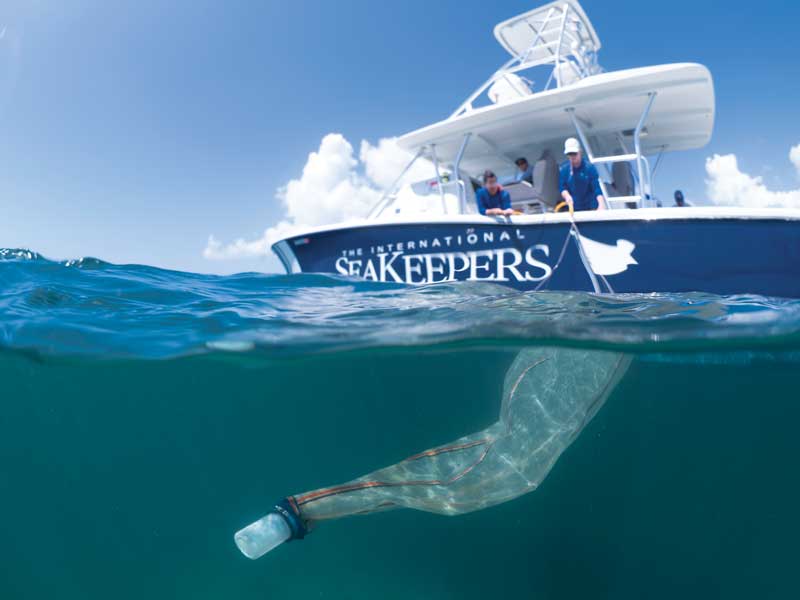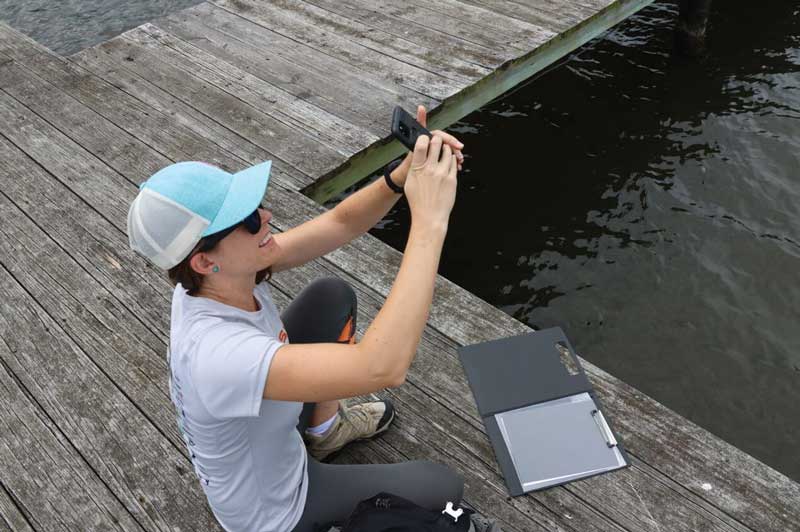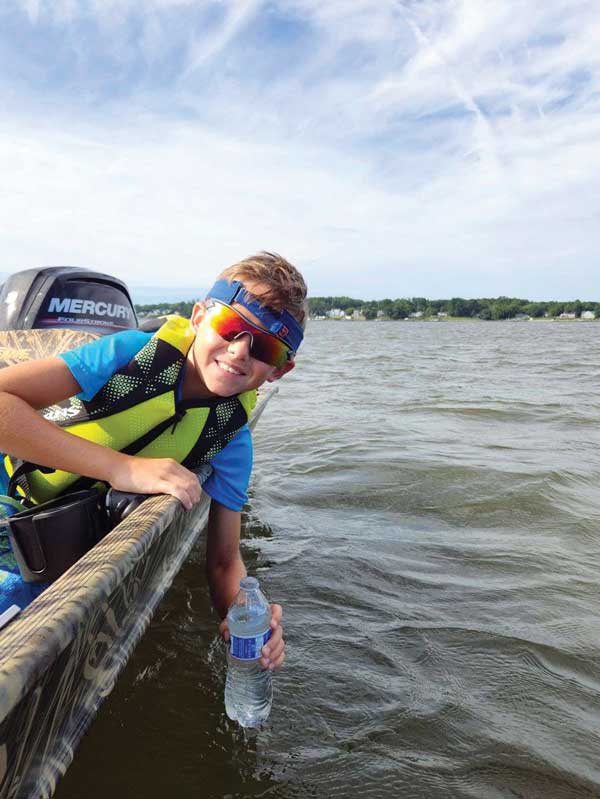We boaters have a unique perspective. We see the water and shoreline differently, and scientists want to hear about it. Citizen science is becoming more and more a part of our modern lives. Noting and logging your observations while you’re out on the water can provide valuable data to support the research being used to improve the state of the world’s waterways.

Being a citizen scientist is how we can support, clean up, and preserve the health of our waters. Organizations are asking for our help and here’s how:
SeaKeepers Society is an organization doing research, education, protection, and restoration. They are asking boaters to share the data that our navigation equipment collects as a means of broadening the sea/riverbed mapping. Their projects include microscopic life sampling, seafloor mapping, and microplastic sampling. Did you know that only about 20 percent of the sea floor is mapped? Their Seabed 2030 project seeks to inspire the complete mapping of the world’s ocean by 2030. Private boats can participate in increasing our knowledge of the ocean by sharing the depth measurements our navigation instruments collect while we’re out on the water. They provide all the equipment and guidance you need to help. Their sampling projects ask private yachts to collect samples of organisms, algae, plastics, plankton, seawater, and more using their unique Neuston Nets.
In our own waters, Chesapeake Water Watch is developing new ways to use remote sensing to fill in water monitoring gaps, and they’re testing those tools right here in the Bay. They need us, as citizen scientists, to collect data with simple-to-use scientific equipment and smartphone applications. These measurements will be used by researchers to help “train” the satellites to accurately monitor the water in the Bay.

We all see dolphins around the Bay sometimes. There’s a team studying them and their behavior at University of Maryland Center for Environmental Science’s (UMCES) Chesapeake Biological Laboratory (CBL). They developed an app, DolphinWatch, for members of the public to report dolphin sightings. The app engages the public to help answer questions surrounding dolphins in the Chesapeake Bay, and all the participating citizen scientists are helping UMCES learn more about these incredible Chesapeake Bay mammals. This observation network provides information on dolphin distribution and behaviors. Visit their website to learn more about this project, view photos and videos of dolphin sightings, and to view a tutorial video on using the app.

Citizen science is a powerful tool in our internet connected world. There are smartphone apps to report the plants around us and bird sightings. There are apps to track plastic in streams. There are opportunities to help with archeological digs. These are all a part of citizen science. These organizations and many more can benefit from our observations and sampling. We can make a difference in cleaning up our local and worldwide waterways. It’s been done and we’ve been a part of the success stories.
By Elizabeth Kelch